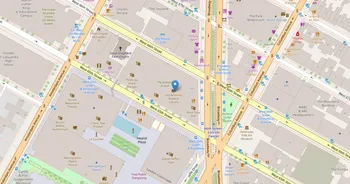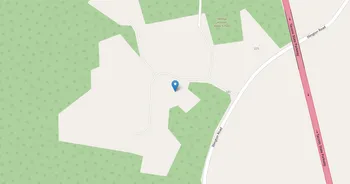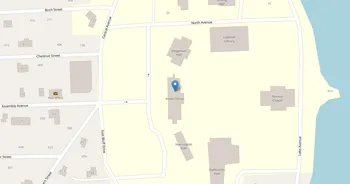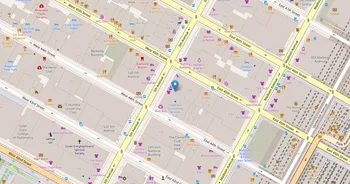Jewish Theological Seminary of America (JTS) : Overview, Courses, Scholarships & Rankings
About Jewish Theological Seminary of America
Set in a scholarly slice of Manhattan, the Jewish Theological Seminary is known for rigorous text study, Jewish thought, and the humanities in conversation with contemporary life. Classes favor close reading and interpretation, supported by a quiet study hall and deep library collections. Students find advising, career guidance, wellness support, and prayer spaces that keep learning and spiritual life connected.
Campus culture is reflective and lively. You hear spirited debate and see holiday traditions alongside music, volunteering, and learning circles. Parks, cafes, and nearby museums widen the day. Career preparation often blends mentoring, internships with communal organizations, and practicum-style work. Graduates tap a network across synagogues, schools, nonprofits, and academia.
Key Institutional Details
Contact & Profile
Academic & Institutional
Academic Programs & Fields of Study
Jewish Theological Seminary of America (JTS) offers 4 degree programs across 2 major academic fields, graduating approximately 95 students annually. The most popular fields by graduate volume are Philosophy (1 programs, 65 graduates) and Theology (3 programs, 30 graduates). Explore program details, award levels, and graduate demographics below.
Philosophy (1 programs, 65 graduates)
Philosophical Studies, Ethics and Religious Thought
| Program Name | Graduates | Gender Distribution | Award Levels | CIP Code |
|---|---|---|---|---|
| Jewish Studies | 65 |
|
Bachelor's
Master's
Doctorate (R)
|
38.0206 |
Theology (3 programs, 30 graduates)
Theological Studies, Ministry Preparation and Religious Leadership
| Program Name | Graduates | Gender Distribution | Award Levels | CIP Code |
|---|---|---|---|---|
| Religious Education | 15 |
|
Master's
Doctorate (R)
|
39.0401 |
| Rabbinical Studies | 10 |
|
Master's
|
39.0605 |
| Sacred Music | 5 |
|
Master's
|
39.0501 |
Admission Requirements & Test Scores
Comprehensive overview of admission criteria, standardized test score ranges, and application requirements for prospective students at Jewish Theological Seminary of America (JTS).
Application Requirements
Data based on IPEDS for 2022-2023 academic year. Test score ranges represent the middle 50% of admitted students (25th-75th percentile). Requirements may vary by program.
Tuition, Fees & Estimated Costs
Overview of tuition rates, housing, and other annual education expenses for undergraduate and graduate students
Financial Aid & Student Support
Summary of scholarships, grants, student loans, and financial aid statistics for undergraduate students
Student Success Metrics
Graduation rates and post-graduation earnings to help assess student outcomes and long-term value of education.
Loan Burden & Repayment Outcomes
Breakdown of loan repayment rates and student debt levels by income and dependency status.
Frequently Asked Questions
Find answers to the most common questions about Jewish Theological Seminary of America (JTS)
How much does it cost to attend Jewish Theological Seminary of America (JTS)?
The annual tuition at Jewish Theological Seminary of America (JTS) is $69,916 for in-state students. When including room and board, books, and other expenses, the total estimated cost is approximately $90,316 for in-state students. Additional costs include room and board $18,400 (on-campus) and books and supplies $500.
Data based on IPEDS program completions for 2022-2023 academic year. Tuition and cost estimates are approximate and may not include all fees, personal expenses, or transportation costs.
What academic programs and degree levels does Jewish Theological Seminary of America offer?
Jewish Theological Seminary of America (JTS) offers 4 academic programs across 2 major fields of study, with available degree levels: Bachelor's, Master's, Doctorate (Research).
Most popular program areas include:
- Philosophical Studies, Ethics and Religious Thought (1 programs)
- Theological Studies, Ministry Preparation and Religious Leadership (3 programs)
Data based on IPEDS program completions for 2023-2024 academic year. Numbers reflect programs where students graduated, not all offered programs.
What is the acceptance rate for Jewish Theological Seminary of America?
Jewish Theological Seminary of America (JTS) has an 45.1% acceptance rate and a 73.4% yield rate, making it highly selective.
Admission statistics breakdown:
- Total applicants: 142
- Students admitted: 64
- Students enrolled: 47
Data based on IPEDS for 2022-2023 academic year. Admission statistics may vary by program and application cycle.
What financial aid and scholarships are available at Jewish Theological Seminary of America?
Jewish Theological Seminary of America (JTS) provides financial aid to 27% of first-time, full-time students, with average grants of $25,991 and average loans of $26,307.
Average financial aid amounts by type:
- Pell grants: $5,270
- Institutional grants: $25,601
- Federal loans: $5,500
The university supports 27 students with grants and 4 students with loans annually.
Data based on IPEDS for 2022-2023 academic year. Financial aid amounts and percentages may vary by program, enrollment status, and individual circumstances.
What is the average salary for Jewish Theological Seminary of America graduates?
Jewish Theological Seminary of America (JTS) graduates earn a median salary of $58,656 after 6 years and $92,751 after 10 years.
The salary range 10 years after graduation spans from $77,837 (25th percentile) to $169,512 (75th percentile).
Data based on IPEDS for 2022-2023 academic year. Salary data reflects graduates who received federal financial aid (approximately 60% of all graduates). Actual earnings may vary significantly based on program, location, and individual circumstances.
Related Universities




Found something useful? Help others discover it too! Share with friends, on social media, or save for later - every share helps someone find the information they need.